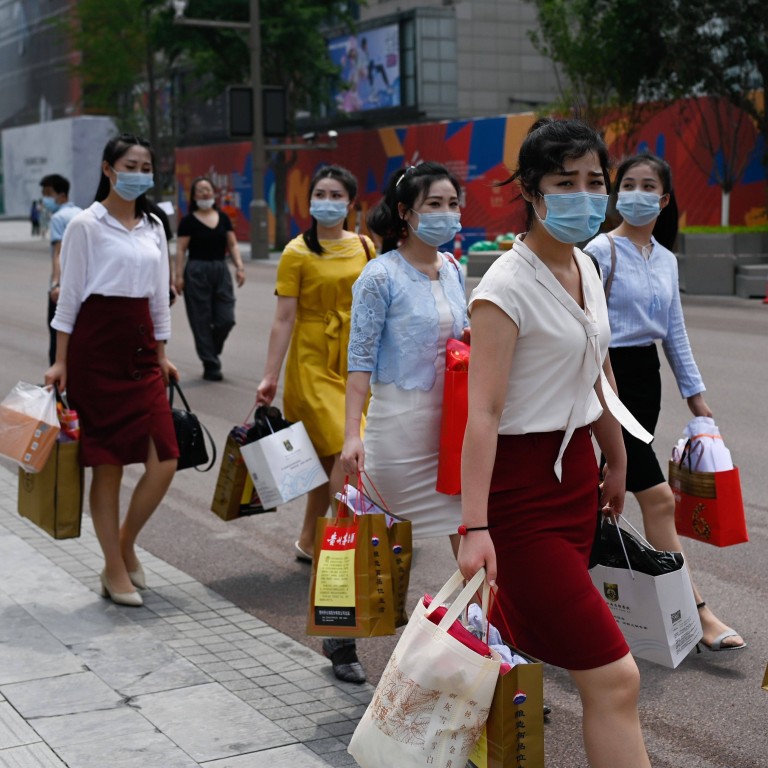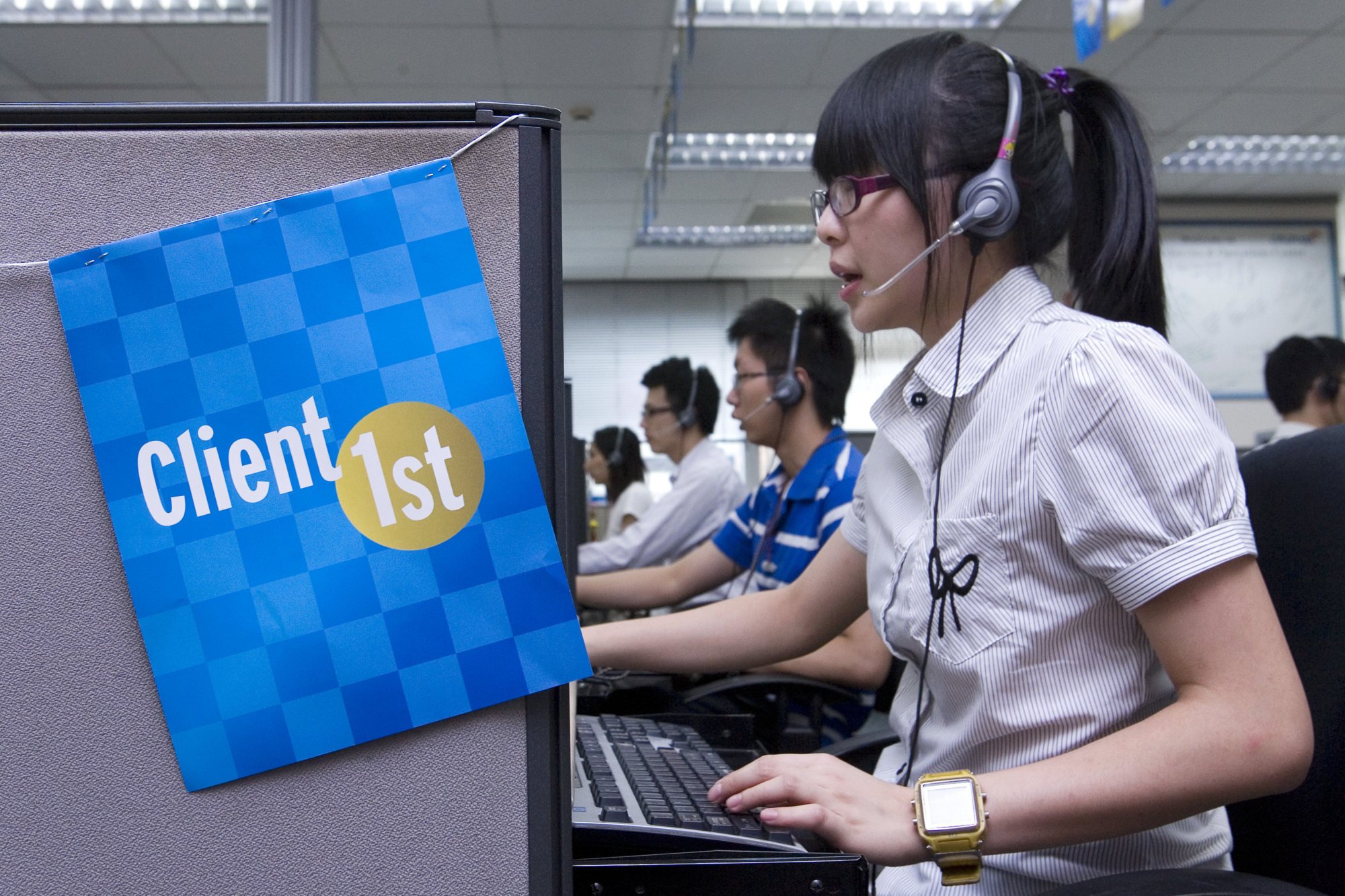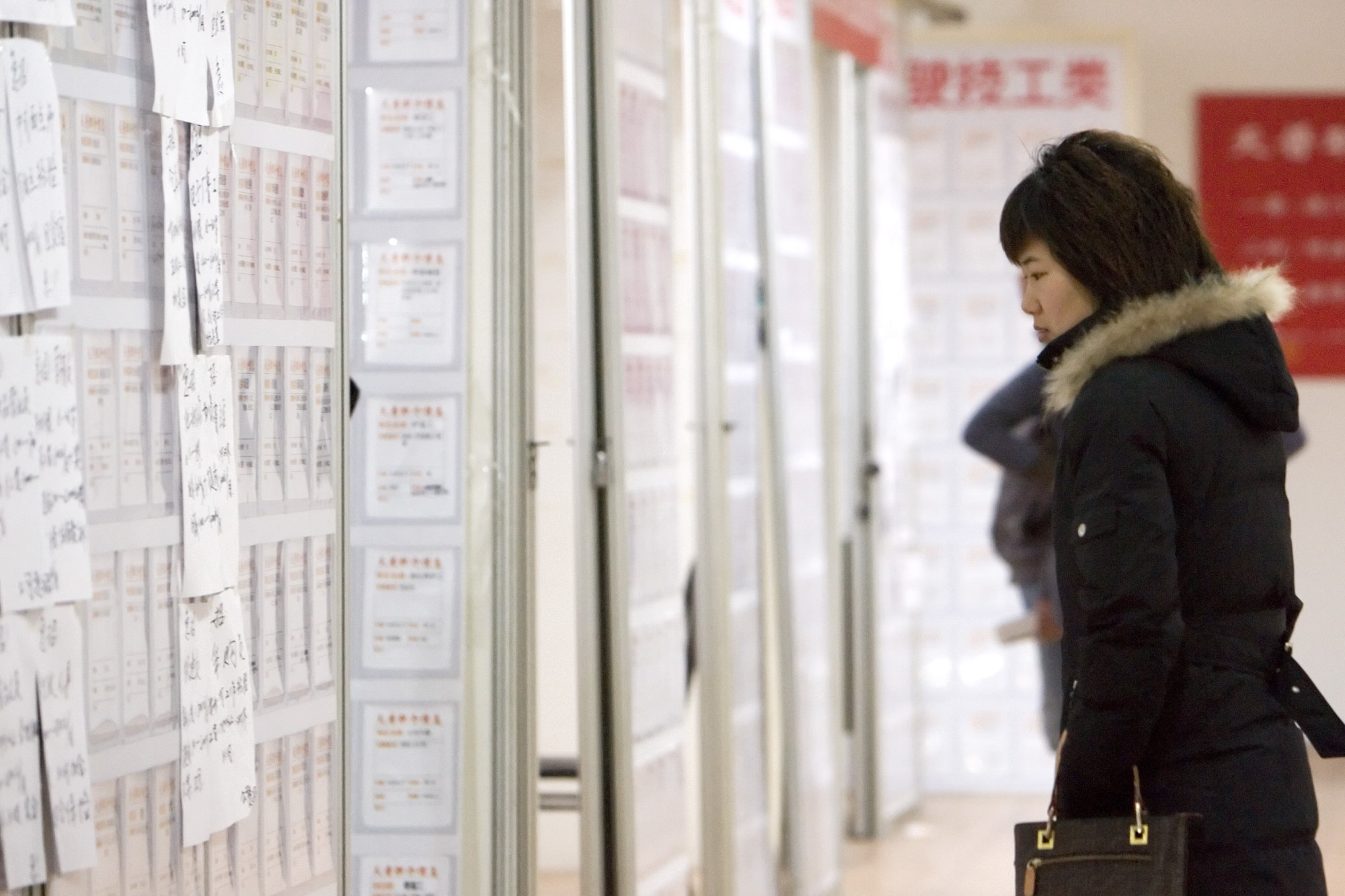
Gender discrimination against women job seekers in China is rife, experts say, after woman questioned about love life in interview
- China has one of the world’s largest female workforces and strong legal protections, but gender discrimination is everywhere , experts say
- One study found more than 85 per cent of female graduates had encountered at least one form of gender discrimination while job hunting
This story about gender discrimination against job seekers is part of a series of stories on women’s issues in China and Asia to coincide with International Women’s Day.
Last week a woman revealed on Chinese social media that when applying for a human resources job with a car service company she was asked how many romantic relationships she had been in and which was the longest.
In response to the woman’s claim, the Hongqiao Car Service company in Nanchang, in Jiangxi province, said the question was relevant because the position in the human resources department required “high emotional intelligence” to maintain good relationships with clients, reported Xian Business this week.

“Most of our employees are female. We put that question in the job application form because if a person has been in love before, she must be considerate to others,” a staff member was quoted as saying.
“Judging from our big data, those who perform well in our company either have married or have a boyfriend,” she said.
Lu Xiaoquan, a women’s rights lawyer from Beijing Qianqian Law Firm, told the Post questions like these were still widespread.
“This is typical discrimination faced by women in hiring - being asked about something that’s not directly related to the job she’s applying for,” he said.
“Giving preference to women with more romantic relationships is putting those who have not been in love before in an unfavourable position. An applicant has the right to refuse to answer such questions.”
Women in China are increasingly speaking out about their experiences with discrimination while seeking work. Recently on Zhihu, China’s leading community-based question-and-answer website, some women said they had been required to have a pregnancy test before beginning a new job.
“Everything went well during the interview, but when I got the notification for the pre-employment health check-up, I found it included a pregnancy test. I was so angry … I’m already thinking of job-hopping,” said one user.

According to a survey by online recruitment services provider zhaopin.com last year, almost 60 per cent of more than 65,000 women interviewed said they encountered inquiries about their marital or childbearing status during the hiring process.
Feng Yuan, founder of Beijing-based women’s rights group Equality, told the Post entrenched stereotypes regarding women and work persisted in China because of old-fashioned views.
“The traditional attitudes toward gender roles, the distribution of labour at home, and the lack of childcare services are the fundamental reasons why employers prefer men over women, or ask female candidates about their marital and childbearing status, or even demand them make certain promises in this regard,” she said.
In recent years China has slowly been improving its gender equality laws, and younger women’s growing awareness about their rights means they are increasingly demanding employers be held accountable.
According to the notice, employers or human resources agencies face monetary fines if their job ads specify a requirement or preference for a gender such as “men only” or “men preferred”.
It also stipulated that potential employers could not ask job candidates about their marital status or childbearing status, nor could they require candidates to take a pregnancy test as part of their medical examination.
Lu said the fines for those who violate the laws are too low to serve as a strong deterrent.
“In the worst case, they only need to pay 50,000 yuan (US$ 7,700) for breaking the law,” he said. “It’s such a low amount even for a small private company, let alone those bigger or state-owned ones.”











